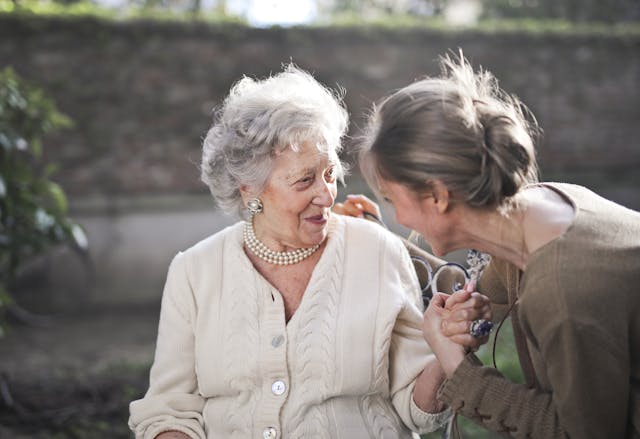In the UK, around 75% of people aged 65 and over experience high levels of anxiety and low mood at least once after turning 65. Poor mental health is an inevitable part of growing older. This is something you often hear health experts say. As you age, you encounter challenges (physical health issues, loss of loved ones, mobility issues, financial instability in retirement). These problems can make a person feel lonely, anxious, and depressed—factors that can have a negative impact on your mental health. However, aging should not hinder your positive mental health. You can maintain your mental health with the right support and resources. This short guide aims to provide practical ways to boost your mental health later in life.
Anticipate changes and prepare for them
Aging involves physical and psychological changes that some people may not like. For example, your mind may not be as sharp as it was in your 40s, or you may not be as quick on your feet. Joint pain can make movement difficult, and there may be a decrease in vision or sense of taste and touch. All you can do to maintain your mental health is accept these changes. Then focus on eating nutritious food, exercising, and prioritizing getting enough sleep to rejuvenate. In addition to physical changes, your work life will also change.
Maybe your retirement is about to expire, or you want to continue working, but on a part-time or flexible-hour basis. Financial issues such as pensions, facilities for local seniors, transport, wills, end of life and funerals are also other issues that may disrupt your mental health. Developing strategies can help you deal with these issues as you age. For example, research on pension credit and life insurance schemes on UK government websites. Then plan your finances for the next few years to avoid financial stress. If you’re retiring soon, think about new skills or hobbies you could pick up and create a schedule for them. Alternatively, look for volunteer opportunities with your local council to keep busy. As you anticipate and accept the changes that come with age, there are things you can do to stay healthy. And you’ll be less likely to struggle with low mood and depression.
ask for help
As you get older, it’s normal to feel uncertain. and wondering if you can handle household chores, budgeting, and taking care of yourself. Feeling uncertain can stress you out and lower your mental health. Instead of fighting what’s bringing you down, ask for help. Of course, the first people you turn to are your friends and family. Research findings suggest that social support promotes health because it enhances a person’s ability to cope, quality of life in response to stress, and overall health.
Note that social support doesn’t just come from your network of friends and family. For example, your GP can provide consultation, recommend exercise therapy or recommend specialist care from a qualified therapist. You may also consider moving into a respite care center if you want to take a break from home. This type of care home provides short-term accommodation for older adults in a safe and supportive environment to promote their mental and physical health. Home caregivers can also take a break to care for themselves.
Stay physically and mentally active
Exercise works by releasing feel-good endorphins (hormones) in the brain, which improves mood and lowers stress levels. Research on the Mental Health Foundation website shows that active people feel more awake and enthusiastic. Daily exercise also reduces the risk of cognitive decline and depression by 20 to 30 percent. However, exercise may be difficult in later years. Your best bet is to do 30 minutes of light exercise a day for five days and follow the Ministry of Health’s recommendations to have a positive impact. Take the stairs instead of the elevator, ride a bike, slow dance, go for a walk, swim, tend to the garden. If you have limited mobility, sit and stretch to increase circulation. In addition to physical training, you can exercise your brain with crossword puzzles, read, learn a new language, or play board games (chess, Scrabble, or cards).
Going through different stages of life (aging) involves changes in your environment that can alter your mental health. Factors such as bereavement, retirement, chronic illness and reduced mobility can contribute to feelings of depression and anxiety in older age. Fortunately, you can maintain positive mental health by understanding and preparing for lifestyle changes. Seeking help and staying physically and mentally active are other important ways to protect your mental health.

